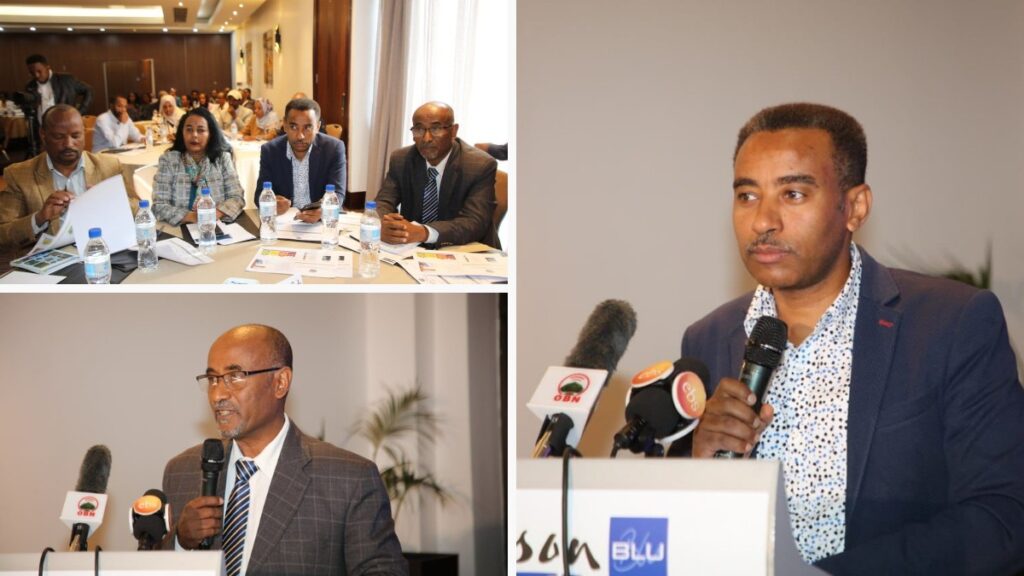Parliamentarians use scorecard tools to promote action to improve health outcomes
Cet article d’actualité est disponible uniquement en anglaise.
Published: Addis Ababa, 26 March 2024
Ethiopia conducted training for 50 members of parliament on the use of health scorecard tools for accountability and action. Ethiopia’s scorecard tools include Reproductive, Maternal, Newborn, Child, and Adolescent Health (RMNCAH), nutrition, community, malaria, and Neglected Tropical Diseases (NTDs). These scorecard tools for accountability and action are used by the ministry of health and their partners to monitor and improve the delivery of health services. The training aimed to equip parliamentarians with the skills needed to advocate for increased health investments, thereby improving health outcomes in Ethiopia. It focused on promoting the use of real time data to identify actions and drive impact.
Utilising the scorecards is crucial for enhancing health service delivery for mothers, children, and adolescents, and for cementing the foundation of accountability across our healthcare system. We have witnessed a significant impact in reducing mortality and suffering. Moreover, the scorecards have served as a crucial platform for engaging with and addressing community health issues. This collective approach not only addresses immediate health concerns but also paves the way for a healthier future for our mothers, children, and young people.
Dr. Alemayehu Hunduma, the Service Executive Representative for RMNCAH in Ethiopia
Parliamentarians have a crucial role in influencing health outcomes through their legislative and budgetary powers. Their involvement is essential for advocacy, mobilising resources, and allocating these resources effectively to enhance health and development initiatives. They are instrumental in policy formulation, securing adequate funding for health programmes, and monitoring the implementation of these policies to better health and nutrition outcomes.

During the training Parliamentarians discussed actionable steps including sharing the scorecards with key stakeholders, integrating them into key meetings, and advocating for financial support. They were also introduced to the scorecard web and app platforms, gaining hands-on experience with the tools for analysing health performance and identifying gaps and actions. The parliamentarians shared their challenges in accessing health data and expressed gratitude for the training, recognising its potential to enhance their engagement and data-driven communication both at the parliament level and within their communities.
As parliamentarians, we are expected to be part of the solutions. We must prioritise health for our people, especially during budget allocations. These scorecard tools enable us to have an informed say. Adolescents are a priority in the health sector, and the RMNCAH scorecard is crucial for identifying areas of improvement to support them.
Dr. Mahteme Haite, a Member of Parliament in Ethiopia
In Ethiopia, the country has used the scorecard tools to identify resource gaps and address challenges. The deployment of the community feedback scorecard in 720 districts and 2,200 health institutions has been a significant achievement. The community scorecard has been crucial in engaging communities in their own health service delivery, significantly improving health services for mothers, children, and adolescents.
To date, ALMA has supported over 40 countries in developing and implementing health scorecard tools, which in some cases also incorporate nutrition indicators. ALMA supports countries to enhance the impact of their scorecard tools, increasing health resource allocation, improved data accessibility for decision-making, resolved stock-outs, and promoted task shifting, policy change and training across Africa.